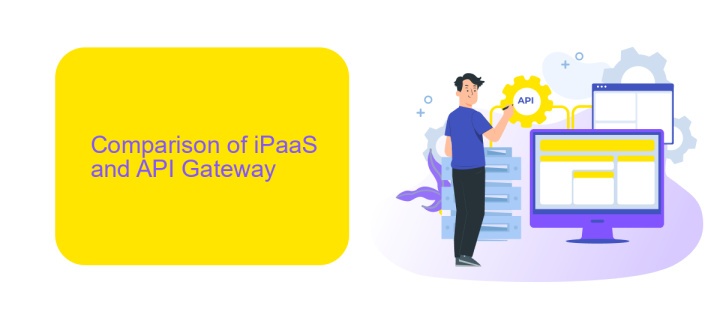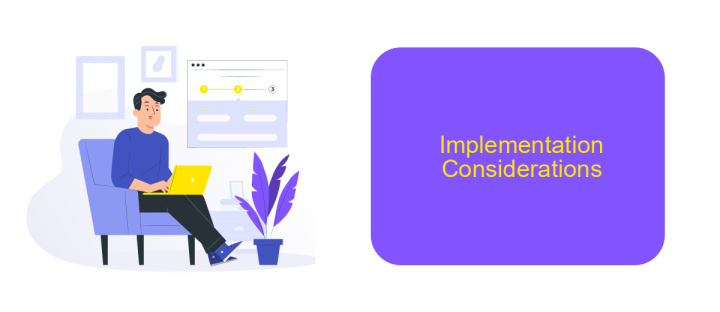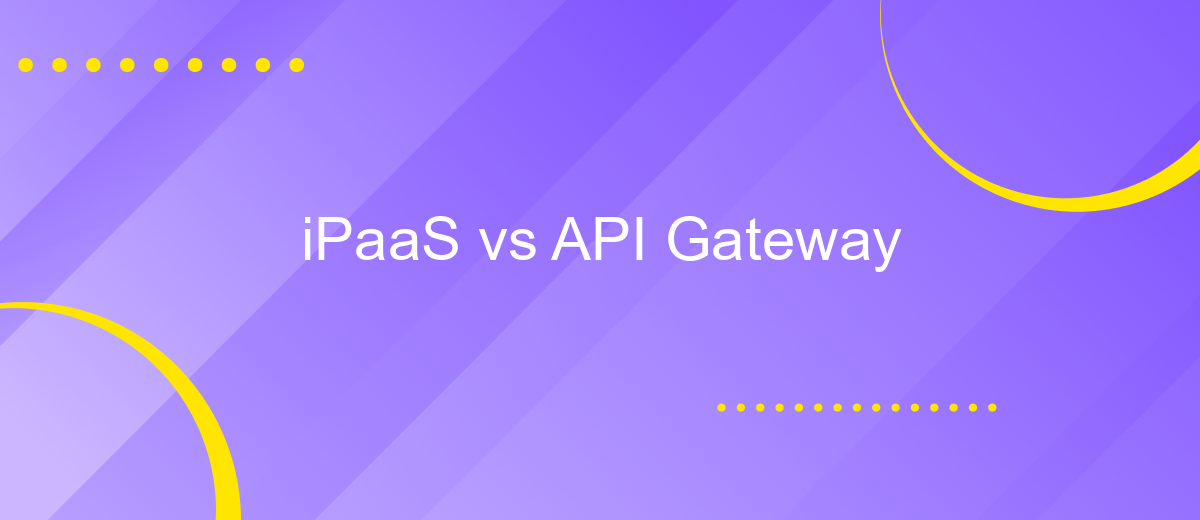iPaaS vs API Gateway
In the rapidly evolving landscape of digital transformation, businesses are increasingly relying on Integration Platform as a Service (iPaaS) and API Gateways to streamline their operations. While both technologies play crucial roles in connecting disparate systems and enhancing data flow, they serve distinct purposes. This article delves into the key differences, benefits, and use cases of iPaaS and API Gateways to help you make an informed decision.
Introduction
In the rapidly evolving world of technology, businesses are constantly seeking efficient ways to integrate their systems and streamline workflows. Two popular approaches to achieving this are iPaaS (Integration Platform as a Service) and API Gateways. Understanding the differences and benefits of each can help organizations make informed decisions on which solution best fits their needs.
- iPaaS: A cloud-based service designed to facilitate the integration of various applications and data sources.
- API Gateway: A tool that manages, secures, and scales API calls, acting as a gatekeeper for API traffic.
Both iPaaS and API Gateways offer unique advantages. iPaaS platforms like ApiX-Drive simplify the integration process by providing pre-built connectors and automated workflows, making it easier for businesses to connect disparate systems without extensive coding. On the other hand, API Gateways provide robust security, traffic management, and monitoring capabilities, ensuring reliable and scalable API interactions. Understanding these tools' distinct roles can help organizations choose the right solution for their integration needs.
Comparison of iPaaS and API Gateway

iPaaS (Integration Platform as a Service) and API Gateways serve distinct but complementary roles in the realm of system integration. iPaaS, such as ApiX-Drive, focuses on simplifying and automating the integration of various applications and services within an organization. It provides a unified platform that allows users to connect disparate systems without extensive coding, enabling seamless data flow and process automation. iPaaS solutions are particularly beneficial for businesses looking to streamline their workflows and enhance productivity through efficient integration strategies.
On the other hand, API Gateways are primarily designed to manage, secure, and optimize the traffic between clients and backend services. They act as a single entry point for API requests, handling tasks such as load balancing, rate limiting, and authentication. While iPaaS platforms like ApiX-Drive focus on the broader integration landscape, API Gateways concentrate on the performance and security of API interactions. Together, they provide a comprehensive approach to integration, with iPaaS facilitating connectivity and API Gateways ensuring reliable and secure API communication.
Choosing the Right Solution

Choosing between an iPaaS (Integration Platform as a Service) and an API Gateway depends on your specific business needs and technical requirements. Both solutions offer unique advantages and cater to different aspects of system integration and API management.
- Identify your primary goal: Are you looking for a comprehensive integration solution or focused API management?
- Evaluate scalability: Consider how each solution will scale with your business growth.
- Assess ease of use: Determine the level of technical expertise required to implement and maintain each solution.
- Review security features: Ensure that the chosen solution meets your security and compliance requirements.
- Consider cost: Compare the pricing models and total cost of ownership for both solutions.
For businesses seeking a user-friendly integration platform, ApiX-Drive offers a robust iPaaS solution that simplifies the process of connecting various applications and services. On the other hand, if your focus is on managing and securing APIs, an API Gateway might be the better choice. Carefully weigh these factors to select the solution that aligns best with your organizational goals.
Implementation Considerations

When implementing iPaaS or an API Gateway, it's crucial to evaluate your specific business needs and technical requirements. Both solutions offer unique benefits, but their effectiveness depends on the context in which they are applied.
iPaaS solutions are generally more suited for businesses looking to integrate multiple cloud services and on-premise applications seamlessly. On the other hand, API Gateways are ideal for managing, securing, and monitoring APIs. The choice between the two should be guided by the scale of integration and the complexity of your API ecosystem.
- Assess the volume and types of data to be integrated.
- Evaluate the complexity of your API architecture.
- Consider the security requirements for data transmission.
- Analyze the scalability needs of your business operations.
Services like ApiX-Drive can simplify the integration process by offering pre-built connectors and automated workflows. This can significantly reduce the time and effort required to set up and maintain integrations, making it easier to achieve seamless connectivity between disparate systems.
Conclusion
In conclusion, both iPaaS and API Gateway serve essential roles in modern integration strategies, yet they cater to different needs. iPaaS platforms are designed to facilitate the seamless integration of various applications and services, offering a user-friendly interface and robust tools for managing complex workflows. On the other hand, API Gateways provide a centralized entry point for managing, securing, and monitoring API traffic, ensuring that APIs are efficiently consumed and maintained.
When deciding between iPaaS and API Gateway, organizations must consider their specific requirements and integration goals. For businesses seeking to streamline the integration process with minimal coding and maximum flexibility, solutions like ApiX-Drive offer an excellent iPaaS option. ApiX-Drive simplifies the connection of diverse applications, enabling businesses to automate workflows and enhance productivity. Conversely, for enterprises focusing on API management, an API Gateway remains indispensable for ensuring secure and efficient API operations. Ultimately, the choice depends on the unique needs and strategic objectives of the organization.


FAQ
What is the primary difference between iPaaS and an API Gateway?
Can iPaaS and API Gateway be used together?
Which one is better for automating workflows between different SaaS applications?
Is it necessary to have coding skills to use iPaaS or an API Gateway?
What are some common use cases for iPaaS?
Strive to take your business to the next level, achieve your goals faster and more efficiently? Apix-Drive is your reliable assistant for these tasks. An online service and application connector will help you automate key business processes and get rid of the routine. You and your employees will free up time for important core tasks. Try Apix-Drive features for free to see the effectiveness of the online connector for yourself.

